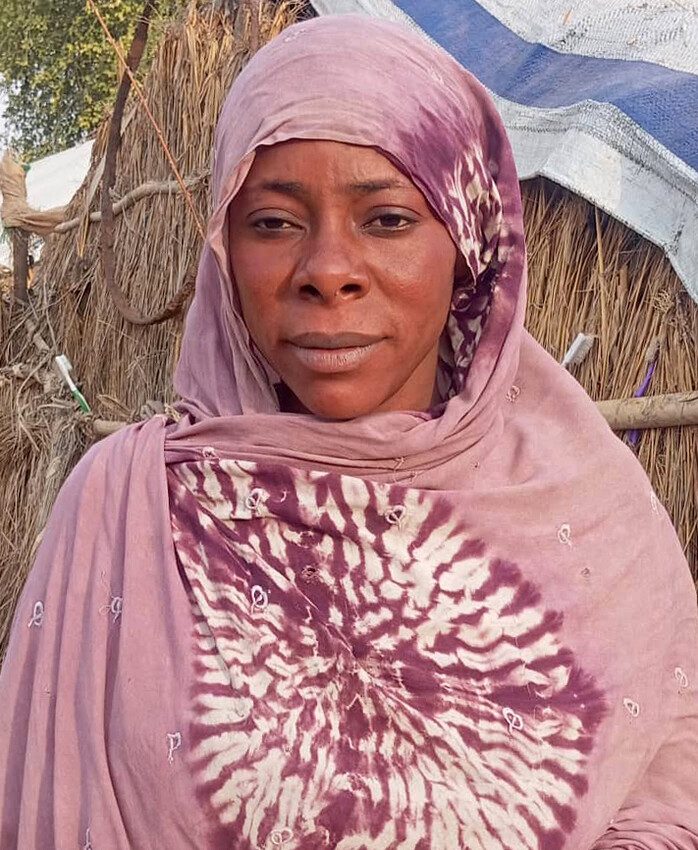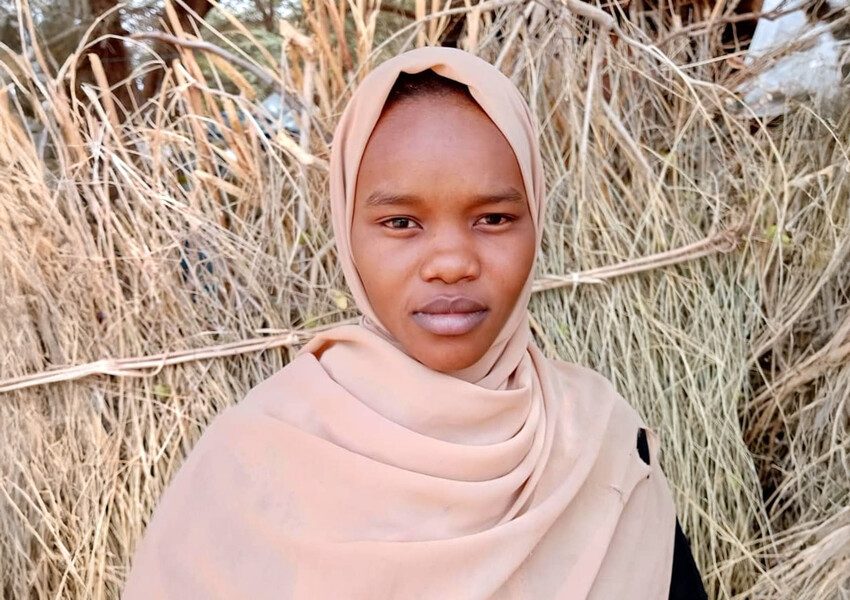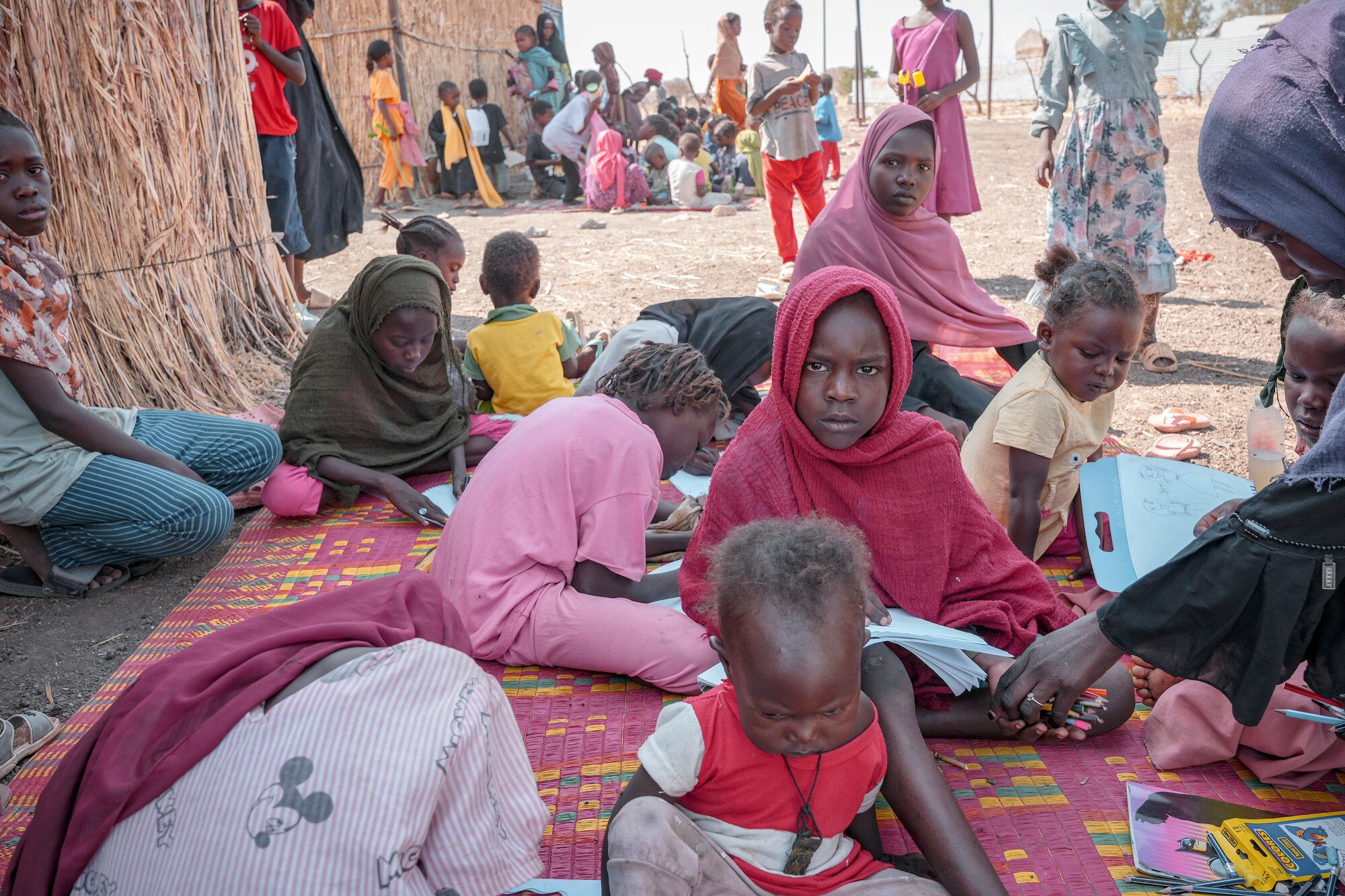Sudan women term life in conflict as ‘indescribable’
Two women in Sudan tell of their harrowing experiences through family loss, multiple displacements and being in a constant state of anxiety and fear as the conflict in the country enters its 3rd year.

Marwa, 28-year-old
“I lost my husband at the beginning of our journey. A shell landed and killed 7 people in front of us. During this time, we fell into an extremely bad psychological state of tension, anxiety, fear and mental distress – conditions that I cannot fully describe.
We left with nothing but the clothes on our backs and kept moving from town to town as soon as the shelling caught up with us. I remember many nights when, with no shelter, the rain poured down on our heads with no cover or protection.
The biggest challenge for me was the lack of food for my children. They were sleeping on a sack of ‘fava’ beans with no shelter, no father and no cover. They were crying from hunger and the only thing we had was a bag of beans from kind neighbours. I slept without food and my children suffered from malnutrition from diarrhoea and eating beans.
My family and I have walked for hours since the fighting began. Suffering as my children were severely malnourished and some were close to anaemia. It was an indescribable situation.
We finally were able to settle at a centre where we have been living for 9 months and though not home, we are taking it a day at a time until we are able to return.
“We fell into an extremely bad psychological state of tension, anxiety, fear and mental distress.
Marwa, 28
Conditions that I cannot fully describe.”
At the centre, I met Plan International’s psychological and social support workers who took us to hospital for treatment and nutrition. Fortunately, my children recovered. Later, we received some money from the organisation in the form of a voucher. I used it to buy charcoal, sage and other small items to trade. We were overjoyed because life was not over.
Then, for the second time, we received a larger amount from the same organisation. I used the money to buy clothes for my children and sandals for myself, as I only had one pair of old sandals with holes. The meals for my family also got better.”

Mohira, 19-year-old
“After the war broke out in my home area and shells fell on our neighbourhood, my family decided to go to the southern districts. Our father died during this time and my mother now had to work. She started selling beans. But the situation worsened and all the family’s sources of income were cut off.
We decided to move to a new area, but the vehicle we were travelling in broke down and the driver insisted on stopping the journey. Luckily, we met one of my aunts who took us to a shelter while we waited for transport to continue our journey.
After about a month, the area we settled in was also attacked by armed groups, so my family and I moved to a remote area about 9 hours away on foot. It was hard walking, especially after we ran out of food and water. Our water purification tablets ran out and we started to get sick. When families started to return to the camp after the fighting stopped, we decided to join them because we had no food, bedding or utensils.
I now work selling beans, lollipops and chewing gum. I go to the market but often don’t make any sales, which is another challenge. When I do make a sale, I use it to help my family with their basic needs.
“It was hard walking, especially after we ran out of food and water.”
Mohira, 19
When Plan International came to the shelter, they held awareness sessions and provided psychological and social support. We found some reassurance in that but life has never been the same, two years on.”
Two years on
15 April 2025 marks 2 years since the start of the conflict in Sudan that has since been described as ‘the world’s most devastating humanitarian and displacement crisis’.
The crisis is tearing families lives apart with millions fleeing to neighbouring countries such as South Sudan, Chad, Central Africa Republic, Ethiopia, Uganda, Egypt and Libya, arriving at gathering sites with only what they can carry.They urgently need shelter, protection, blankets, food, water, medical assistance, and psychosocial support.
Sudan is now also among the top 4 countries in the world with the highest prevalence of global acute malnutrition and has the highest malnutrition rates in Eastern Africa. 4 million children and over one million pregnant and breastfeeding women are acutely malnourished.
People in Sudan have faced 2 years of unimaginable trauma. Fighting continues with civilians, including children, killed, injured and subjected to horrific sexual violence.
Despite this, the conflict is considered a neglected crisis. It is under reported, underfunded and both famine and humanitarian conditions are expected to worsen further as the conflict enters it’s third year.
How Plan International is supporting

Plan International has been working in Sudan for over 45 years and currently has a presence in Eastern Sudan, White State, North Kordofan, South Kordofan and North Darfur.
As the conflict enters its 2nd year, we continue to respond to the crisis, addressing a range of needs including water, sanitation and hygiene, child protection, health and nutrition, food, shelter, education in emergencies, mental health and psychosocial support.
Categories: Emergencies, Protection from violence




